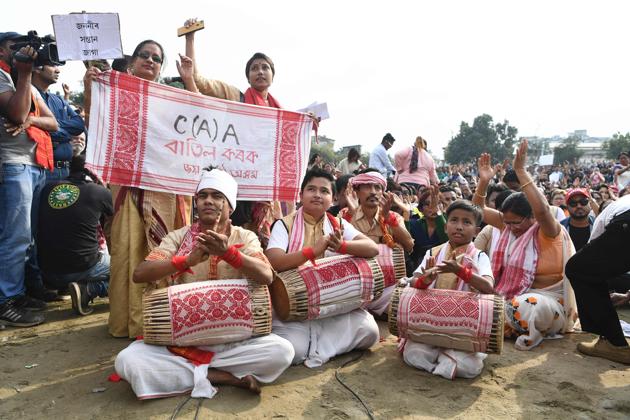Allay apprehensions on the CAA
The last thing the country needs is communal tension. The State must focus on the economy
Last Friday, I was woken up by a call from an old friend. He sounded scared. He had lived abroad three decades ago and fallen in love with a Muslim girl from a neighbouring country. They began living together, and when they discovered that they were going to be parents, they got married. He later came back home to India, and introduced his wife to everyone, by which time her name had been changed. My friend’s wife followed every ritual and took part in every religious ceremony. Except for his close family, nobody knew her original name. Even today, this couple is considered as the ideal couple among our friends. Celebrating Holi and Diwali at their place is always a joyful experience. Now, even their grandchildren have grown up. Many people who came into their lives later don’t even remember which country she belongs to.

But he is now a worried man. He told me that he had completed all bureaucratic formalities for his wife, but intelligence officials still visited them, demanding to see all their documents. This proved embarrassing for my friend, especially when he had company. After all, he asked, what misdemeanour had his wife committed? She has observed all family traditions and the law of the land. Her children and grandchildren were born in this country. She paid taxes regularly, so why should she face this trouble?
He is now apprehensive that his wife could lose her Indian citizenship after the amended Citizenship Act. I told him not to worry, saying, “You have followed all the rules and laws of this country like a responsible Indian citizen, you will face no problems.” He was not entirely convinced. He pushed back, arguing that if intelligence officials routinely harassed them without any reason, they may do so even more now.
This is a dilemma I am sure many people who have relatives from neighbouring countries are facing. It is an issue that has generated concerns across the country. After Friday prayers at mosques, there have been rallies, demonstrations and heated discussions in dozens of cities across India. It is a different matter that many Muslims have been saying that such demonstrations should cease, as they send out the wrong signals. They believe that the people’s movement in the Northeast is not about Hindus and Muslims. They are concerned and insecure about their cultural identity. Religion-based protests, they fear, could turn this into a Hindu-Muslim issue.
Prime Minister Narendra Modi has already urged people to trust their sevak, promising that no injustice would be done to anyone. Home minister Amit Shah too expressed the same sentiments in Parliament, but the apprehensions still remain. The government had taken all precautions to maintain peace and calm before the Ayodhya verdict, but this time, no such preparations were made.
The restoration of trust is vital because the Union government requires time and space to get the economy back on track. At a time when the slowdown has created panic in the markets, the last thing the country needs is communal tension. In addition, the situation in Jammu and Kashmir and the Northeast is far from normal. We cannot afford further unrest. The prime minister of Japan postponed his visit to Guwahati in view of the situation. Two senior ministers from Bangladesh have also cancelled their India visits. We have to act firmly so that internal issues don’t become international.
The Citizenship Amendment Act provides for citizenship to Hindus, Sikhs, Buddhists, Jains, Parsis and Christians who have come to India from neighbouring countries before December 31, 2014. Muslims have not been included in this. The roots of the apprehension about CAA in the Northeast can be traced to the experience in Assam, where a total of 3,30,27,661 people had applied for eligibility for the National Register of Citizens (NRC) . Of these, 3,11,21,004 people were deemed suitable. A total of 19,06,657 were excluded from the register. It is not that all these people have been put in jail. They still have the option of going to the courts to seek justice. There are both Hindus and Muslims among these found unsuitable.
Now the people of the Northeast fear that immigrants will become citizens under the cover of this law. In which case, there are fears that they will encroach on employment opportunities and other resources. Assam already faced this problem in the 1980s. A great deal of violence and bloodshed took place at that time. Hopefully, this dispute will be resolved in time so that a new generation does not have to go through the same agony.






